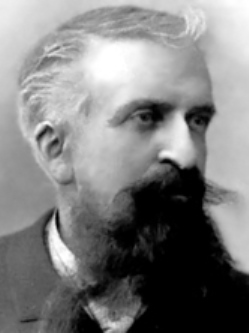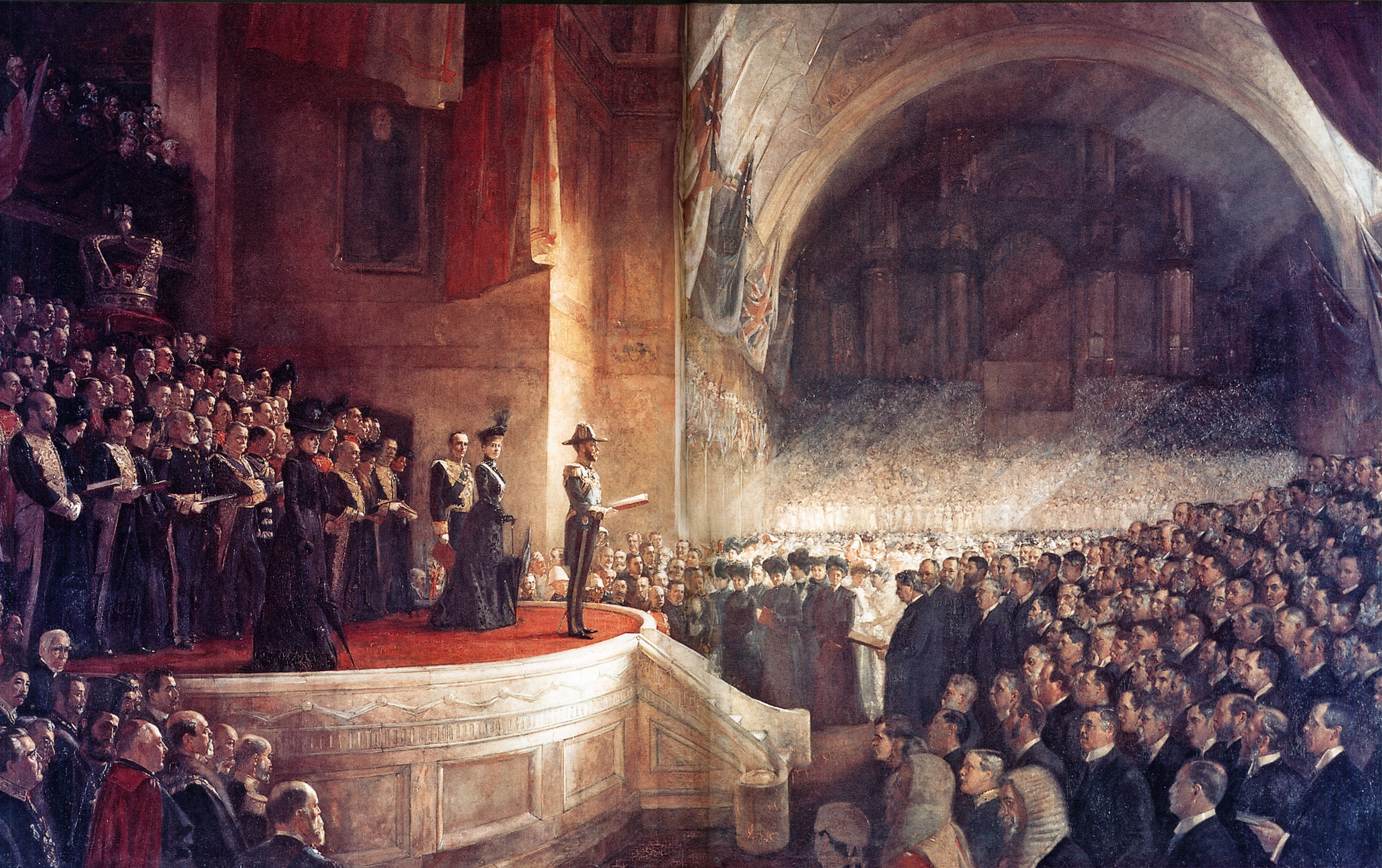Ride That Tiger
Or, The Party’s an Ass
“… I do not expect ‘history’ to be anything but a ‘long defeat’— though it contains (and in legend may contain more clearly and movingly) some samples or glimpses of final victory.”
— J. R. R. Tolkien1
The carrion birds of the trans-Tasman media had long circled the rough, progressively flea-bitten beast of the Abbott premiership as it slouched precariously toward an ever more doubtful Bethlehem. Its euthanasia came as a special surprise: I received the news from an iPhone-armed relief teacher just as I was trying to interest a class of animated Third-Formers in the layout of the N.Z. House of Representatives. Here I would like to offer some suggestions for future conservative activism, an instructive (one hopes) overview of Antipodean political culture, and a reflection on traditionalist principles.

J. R. R. Tolkien (1892 to 1973)
From a Spenglerian point of view, the Punch of neoliberalism may have knocked Judy of compromised conservatism off the stage for now, but it’s still no less a puppet show in the hands of Money Power. If the last two centuries have taught us anything, it’s that no force has been more corrosive of tradition than globalist finance-capitalism. Obsession with ‘free trade’ is the albatross round the neck of the modern Right: the only hope for conservatives to triumph with integrity is to reach out to the working class – who stand to lose the most by Leftist xenophilia – and affirm economic principles along the lines of distributism, corporatism, or Old Labour nationalism. The hackneyed debate between ‘big’ and ‘small’ government belongs firmly in the 20th century.
The rôle of the modern conservative is Socratic. He is a gadfly on the flanks of a mainstream Right that too easily grows fat, complacent, and spineless. He knows not to put his trust “in princes, nor in the son of man, in whom there is no help”2 — for, as the Anglosphere has known within recent memory, today’s conservative government will too likely turn tomorrow’s faux-conservative sellout. If it’s a question of which party to support, there are only two questions to ask: What issues are important to me? Can this party make a difference? Loyalty to a party establishment should be secondary to the usefulness of any party as a vehicle for achieving a desired outcome. This sounds like a call for conservatives to become single-issue activists. Not so. It’s about limiting energy to areas where genuine headway can be made, thereby conserving the resources of a conservative movement which is still dwarfed by the ideological powerhouses of the Left. On a case by case basis, conservatives must identify party structures where pressure may effectively be exerted. In Australia this tactic has been utilised in the past by pressure groups drawn from Catholic communities of Mediterranean and Eastern European origin, working alongside nationalist elements of the Anglo-Celtic old stock.

Oswald Spengler (1880 to 1936)
History suggests that nationalist movements only gain traction when the lower-middle class realises the threat to its existence by foreign powers or economic and social turmoil. Rightwing groups need to articulate these concerns and use them to move public discourse in the right direction. In the immediate present, the most obvious issue for national integrity in Australia and New Zealand may well be resistance to the sale of assets and real estate to foreign investors—overwhelmingly plutocratic, absent any sense of local ‘rootedness’ to the traditions and history of the host population. We have seen a groundswell of public opinion against this trend, and it is Labour rather than the National Party that has been more willing to ignore facile accusations of ‘xenophobia’ and advocate restrictions.
Conservatives face an uphill battle because their ideology is not deeply rooted in Antipodean soil. On this side of the Tasman, politics essentially began with the destruction of the local ‘squattocracy’ and the breakup of their estates by the Liberal Party from 1891. We’ve always been seen as a ‘classless’ Fabian paradise, freed from the hierarchical and dogmatic systems of the Old World—the result being an even more yawning cultural ennui than the North American. The governing National caucus does harbour a handful of quote-unquote conservatives, but more in the character of a refuge than a bastion. Support for soi-disant Christian parties has been marginal, and the formula for their formation and dissolution over the last three decades has generally followed that of the waste disposal services: Reduce, Re-Use, Recycle.
The lack of any serious challenge to the dominant liberal narrative means that public discourse is entirely dominated by the regular whining of Sav-bibbing, ethnic-art-collecting Radio N.Z. snobs against anyone ignorant enough not to share their P.C. nostrums.

Julius Evola (1898 to 1974)
The only ‘conservative’ commentators of any interest in this country are Mr. Wishart, the investigative journalist, whose Investigate magazine provides a platform for a range of right-leaning perspectives; and Mr. Loudon, the veteran anti-communist, who has done some interesting work documenting the infiltration of militant socialists into positions of influence in New Zealand and the United States. Both these gentlemen lean heavily on North American models of Culture War rhetoric.
We can only expect an escalation of the witch hunts and campaigns of harassment against anyone perceived by the Thought Police as spreading ideas of a politically incorrect nature. A primary concern for rightwing ‘movements’ will be to provide such targets with refuge and encouragement. The Left has the capacity to mobilise its malodorous masses whenever it wishes to counter opposition; the Right needs to do the same, with or without support from mainstream parties. It would be a truism to describe how important the Internet has become as a clearing-house for the ubiquitous ‘Social Justice Warrior.’ Public comment sections on popular websites, with their facilities for ‘sharing’ and ‘voting,’ often operate according to the logic of Le Bon’s Psychology of Crowds: concerted attacks by ‘trolls’ or hackers have achieved minor victories in the form of intimidation and inconvenience for their targets. This tactic has been employed to good effect in some sections of the Alternative Right, if only to boost morale and to annoy SJWs just by reminding them that opposition exists.

Gustave le Bon (1841 to 1931)
Above all, the future of traditional conservatism will depend on the ties of friendship and camaraderie formed between men, and a revival of societies exclusively for men to coöperate and learn from each other. This is because the State and the political sphere are inherently masculine.3 To deviate from this is to feminise politics and detach the State from its higher, supra-individual aims.4 That is why conservative ‘movements’ which focus primarily on ‘family values’ have no chance of recapturing the State or even the churches. Family concerns, though of fundamental importance, have been and always will be a feminine sphere, and it is precisely since the Hearth of Vesta has encroached upon the altars and debating chambers that these institutions have taken such a turn for the worse. There will always be decisions and sacrifices which only men can make, and are expected to. The Australian and Kiwi tradition of ‘mateship,’ encapsulating stoic ideals of solidarity, peer equality, and irreverent respect – consecrated by the Männerbund of ANZAC – springs from the same taproot as the Spartan Ὅμοιοι.
The reason why the pleasant urbanites you meet in everyday life are prejudiced against your views isn’t that they’re inherently ‘wrong/evil,’ it’s because the Overton Window lies well to the left of the spectrum. Amongst our acquaintances, we must continue to critique and ridicule Left-liberalism and its fruits to counter the lies and distortions of media chatterboxes. This is why it is important for informal and online networks such as the Sydney Traditionalist Forum to persist and expand: they provide forums for well-informed and genuinely rightwing commentary to develop unimpeded by leftist disruption. “Speak boldly man, the Truth is on thy side”:5 hearts and minds will continue to be liberated from the liberal narrative of Western self-loathing because the truth is on your side. I know, because just such an experience occurred when I first encountered Prof. Windschuttle’s œuvre on Aboriginal history as an undergraduate.
The Right doesn’t need another party. It doesn’t need young idiots who like dressing up and posing for photos. It needs to realise that the ailments of the West will not be solved by a change of management but a change of mindset, a change from the prevailing materialism: “While nineteenth-century materialism closed the mind of man to what is above him, twentieth-century psychology opened it to what is below him.”6 What it needs are real culture and real community, not the banal multicult ethnic-festival hype your Local Authority subsidises. Go to operas and oratorios. Stand for parish councils and school boards. Liberals push their vision of an ‘inclusive,’ environmentalist society closer to realisation by raising concepts like rubbish sorting to the status of secular ritual through public education. If initiatives that promote a traditional way of life are ever to bear fruit, they will need to be taken just as seriously.
“The Master said, ‘The superior man, in the world, does not set his mind either for anything, or against anything; what is right he will follow.’”
— Confucius7
– Michael Tung is a graduate in Ancient History and Political Studies at the University of Auckland and is currently training for registration as a high school teacher.
Endnotes:
- J. R. R. Tolkien, Letter to Amy Ronald (15 December 1956) reproduced in J. R. R. Tolkien, The Letters of J.R.R. Tolkien Christopher Tolkien and Humphrey Carpenter (eds.) (New York: Mariner Books, 2000) p. 255.
- Psalm CXLVI.3.
- See generally: Chapter II of Julius Evola, Men Among the Ruins – Post-war Reflections of the Radical Traditionalist (Rochester: Inner Traditions International, 2002 [1972]).
- See generally: Chapter XIV of Otto Weininger, Geschlecht und Charakter (Berlin: Matthes & Seitz Berlin, 1980 [1903]).
- John Bunyan, The Pilgrim’s Progress (1678) at I.6.
- René Guénon, “L’Erreur du psychologisme” Études Traditionnelles Vol. XLIII (Jan.-Feb. 1938). [SydneyTrads Editors: this quote is also attributed to A. K. Coomaraswami, who was paraphrasing Guénon: see Harry Oldmeadow, Journeys East: 20th Century Western Encounters With Eastern Religious Traditions (Bloomington: World Wisdom, 2004 [1947]) p. 123 n. 140]
- Confucius, Confucian Analects, The Great Learning & The Doctrine of the Mean James Legge (trans.) (New York: Dover Publications, 1971) Book IV No. 10.
Citation Style:
This article is to be cited according to the following convention:
Michael Tung, “Ride That Tiger; or The Party’s an Ass” SydneyTrads – Weblog of the Sydney Traditionalist Forum (17 October 2015) <sydneytrads.com/2015/10/17/2015-symposium-michael-tung> (accessed [date]).






Leave a comment